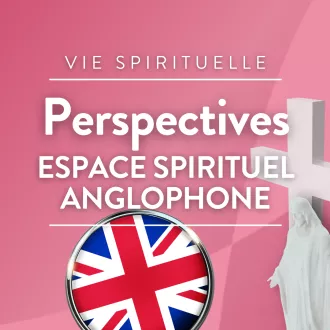FAITH, BELIEF AND CONFESSION | A talk by Valerie Brown

The heart has only to believe, the lips have only to confess, meaning by that the message of faith that we
preach, that Jesus is Lord and that God raised him from the dead. 'It is by believing with the heart that you
are justified and by confessing with your lips that you are saved.' Saint Paul. From Romans 10.
Every Sunday the Christians of many churches assemble and every Sunday we all say the 'Our Father'
and the credo, confession of our faith. But both have become so familiar that we no longer think about
what we're saying and the our Father comes out like bullets from a firing squad while the credo tumbles
from our mouths, as we push on, hell bent on reaching the end. Is there any justification, any redemption
in that ? Perhaps we need to take a fresh look at these two important texts.
Let's begin with the first word of each : 'Our Father...' and 'I believe...'
The Apostles creed, the oldest of the credos, is in the first person. The Nicene creed is often written in the
plural,'we', but let's stick with the oldest tradition, the 'I believe ...' Who are we addressing here ? We are
speaking as separate individuals, but we are in unison to confront the other. And who is the other ?
Perhaps its the doubting part of ourselves, or one another, those who are questioning us, perhaps
challenging us ? Or perhaps its the devil. Dare we openly declare our faith ? Together, perhaps. The early
church is challenged on all fronts. It needs to define itself, to have something clear to hold onto, making
all those individuals, all with their own ideas into one. The credo is of this world and this time and it
carries the bricks and mortar with which to build the Church, the future kingdom, the promise of universal
brotherhood. But the tone of our confession is tense. It's fighting talk
Now let's turn to the Our Father – who is it speaking to ? The ultimate other, the Father in heaven. We
have been lifted out of this world. And who is speaking ? We are. We are speaking as one being, a
universal brotherhood praying for the kingdom to come. And it's very close, because, that 'Our' includes
Jesus. We are saying his words, with him. He is our brother, and through him we can approach the Father
with confidence. He it is who lifts us up into the future kingdom to pray to our Father. Through him, we
are already in eschatalogical time.
While the Apostles creed is packed with detailed information, (the Nicene creed even more so), the Our
Father is simplicity itself. And yet, it says everything. And the tone is different. Relaxed and confident,
we look to the future and the coming of the children of God when all creation will be delivered from its
slavery to corruption. 'For thine is the kingdom, the power and the glory, for ever and ever.'
The heart has only to believe, the lips have only to confess, meaning by that the message of faith that we
preach, that Jesus is Lord and that God raised him from the dead. 'It is by believing with the heart that you
are justified and by confessing with your lips that you are saved.'
These two great texts, the Our Father and the credo, speak from different perspectives ; The Our Father
believes, the credo confesses. In the one, we are already justified, in the other we are saved. Think about
that, next Sunday.


Des réflexions spirituelles proposées aux anglophones - sous le titre : Perspectives
RCF vit grâce à vos dons
RCF est une radio associative et professionnelle.
Pour préserver la qualité de ses programmes et son indépendance, RCF compte sur la mobilisation de tous ses auditeurs. Vous aussi participez à son financement !
